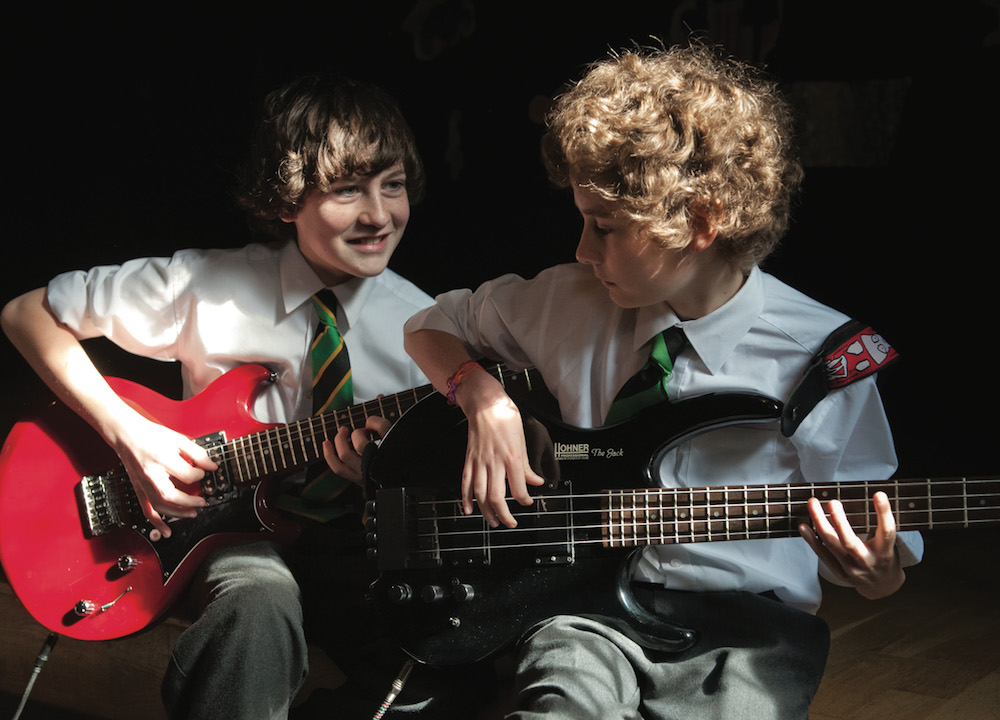Participation is the key
Posted on 24th Feb 2016 in Which School?, School News
Andrew Gough, Head of Ripley Court School, says parents need to look beyond a school’s headline figures...
The usual Head’s speech at the annual prep school speech day will tend to consist of numerous examples of the successes of the school during that year. It will without question point out that 100% pass rate, the number of sporting victories, the tournaments won, the medals gained, the music exams passed, the gymkhana rosettes gained and so forth.
And the prep school parent sitting listening will feel a small glow of satisfaction that they have invested their child’s education in a successful school and will be pleased to be spending time among the successful and the great and will feel a sense of pride that their child was involved in such an interesting and successful school, particularly if their child was a member of that unbeaten team, that award-winning choir or that successful Olympiad entry.
And it is all very worthwhile, and entirely creditable, and slightly predictable.
Those marketing schools advise on all the details of that which sells a school. Prospective parents (independent school jargon for prospective clients) enter schools virtually climbing through the trophy cabinet. Walls are festooned with honours boards, and honour-bedecked smiling children, and success at everything oozes out of every pore. The idea behind this is to make your school look more successful that the other local competitors.
There will, however, be that more discerning parent at speech day who does not listen to the drone of gong and medal with undiluted joy, but instead has another thought, as the prizes are dished out to the successful. This will go on the lines of “It is great that we seem to be doing so well, but where in this list of talent and success does my child lie?” She played a few matches; he sang in the junior choir; she has progressed well and passed her entry test to the next school without trouble but also without a scholarship; he has been happy enough, but hasn’t really featured in the way the stars of the piece seem to have featured. No complaints, but no great hoorays, either. His or her time at the school has passed pleasantly enough.
The real issue nagging at this parent is that in a school where many children seem to carry bucket-loads of trophies away is not “why isn’t my child?” They know why not. It is more the feeling that the bus has been moving, and somehow the child has failed to get on it.
In his book David and Goliath, Malcom Gladwell considered the issue of the ‘also turned up’. He looked at two universities – Ivy-league Brown and more humble Maryland, and noted that in entry requirements the highest flyers in Maryland would not even pass into the bottom end of Brown. Yet, in a longitudinal study, it turned out that in life the highest performers were the top third of Brown, followed by the top third of Maryland. The other two-thirds of these schools did fine but were less visible. What this means is that the success of the top third depends upon having the bottom two-thirds of ‘also turned ups’ propping them up.
Harsh? Well maybe. But here is a tip when looking for a prep school for your child. You will expect to see the honours board scholarships, and the trophies in the cabinet, but do not immediately assume your child will be contributing to these. Look, instead, at the level of participation that every child enjoys. Academic study is actually the least of your worries in Prep schools – true confidence comes from having a go and feeling a central part of something bigger and more worthwhile.
Have a look at the fixtures card, and do some sums. Fifty boys in a year equates to three rugby fifteens. How many fixtures does the third team play in a term, if it exists at all? Teams are sometimes smaller for the younger age groups – football is often six-a-side. Having an A, B and C may sound great, but that is only eighteen children. What do the other thirty-two do?
If a school is ‘elitist’ and is always desperate to win, they may not put out teams for the less able players at all. In fact, the process of elbowing less-successful academics out before the league tables get sullied is well known among some ‘more academic’ senior schools. Great teaching-schools top league tables, but usually also ruthlessly select the intake and ruthlessly prune towards the top.
The best schools never ignore the ‘great middle’ – but you have to look past the bunting to see the real party.
For more information about Ripley Court School, see their profile on this website.